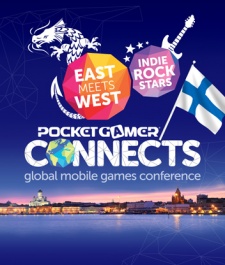At Pocket Gamer Connects Helsinki 2014, freelance journalist Will Freeman took out his crystal ball and considered how the mobile game industry is changing.
Covering everything from monetisation trends to specific countries, funding issues, publishing and alternative forms of discovery, it's a must-view roundup of how the industry has changed and will continue to change in 2014.
You can check out a video of the presentation below, or join the PocketGamer.biz Business Network to download the full report.
You can see all the video presentations from Pocket Gamer Connects Helsinki 2014 here.
Pocket Gamer Connects is the biggest mobile games show in Europe, which brings together the best speakers and delegates from across the industry and from all over the world.
To-date, Pocket Gamer Connects has been held in London and Helsinki, and the show will be heading back to the UK in January 2015.
To find out more about the latest show, head on over to www.pgconnects.com.
Click here to view the list »












